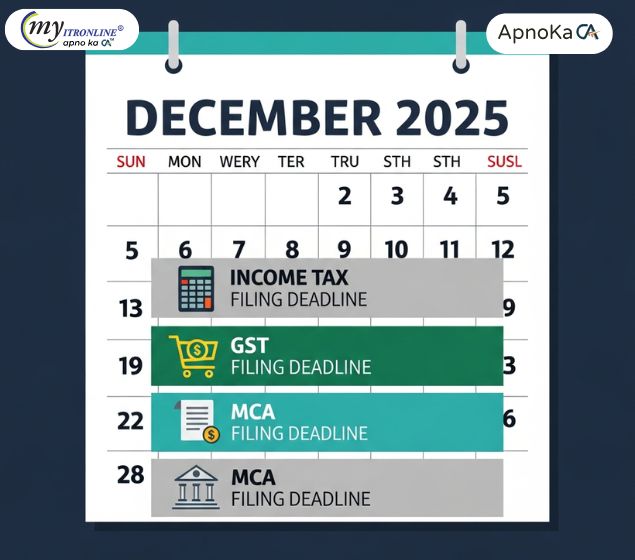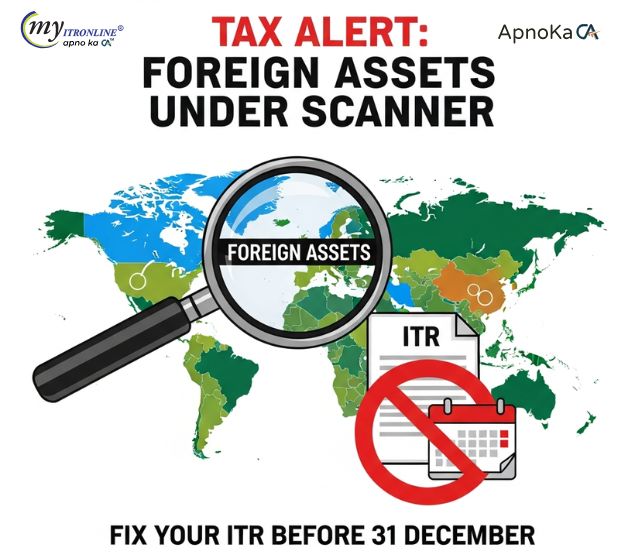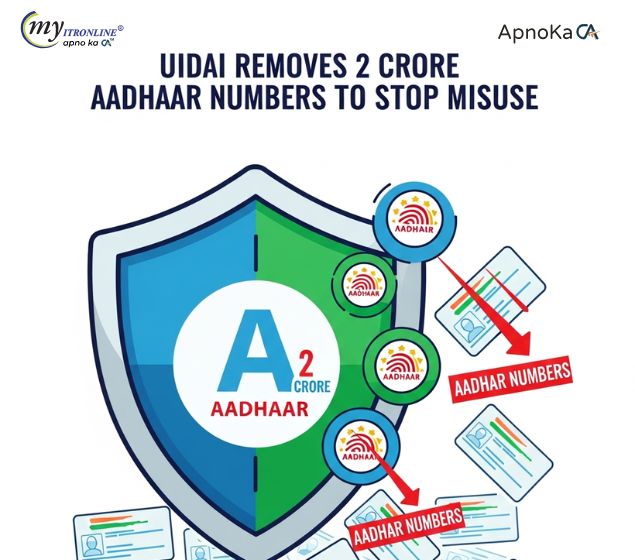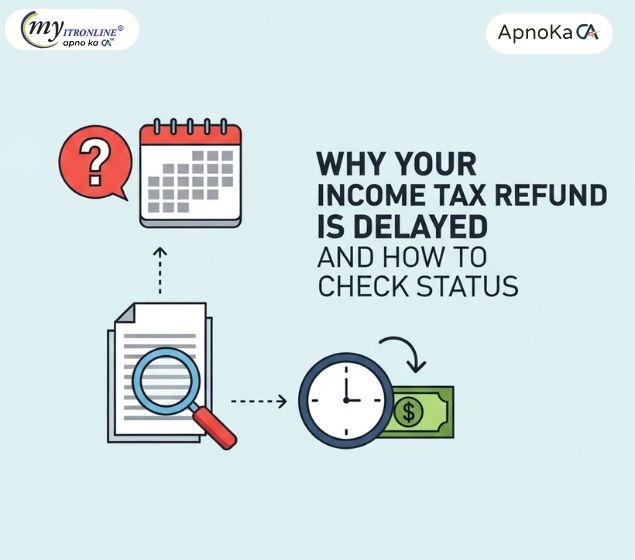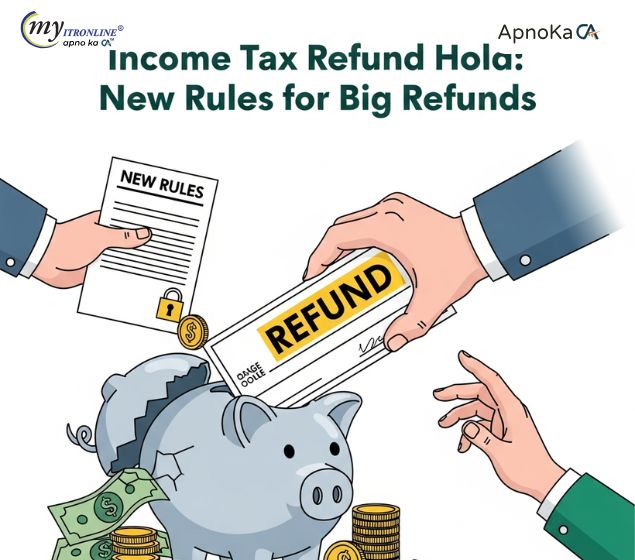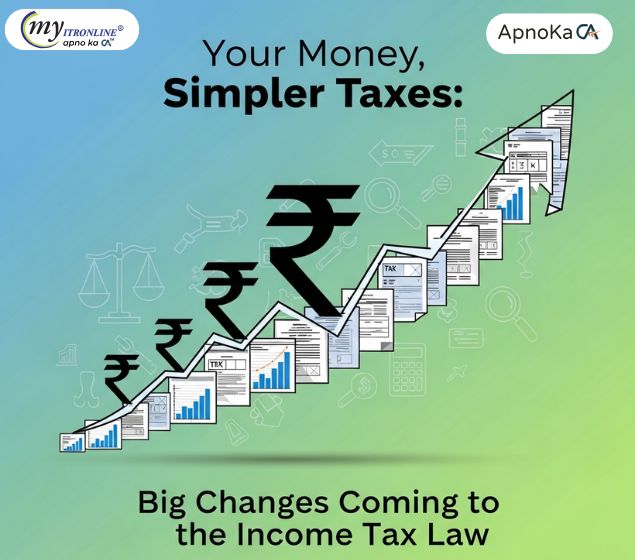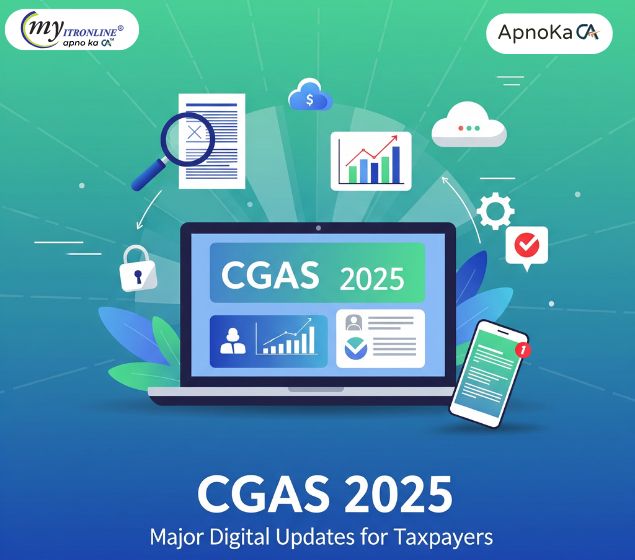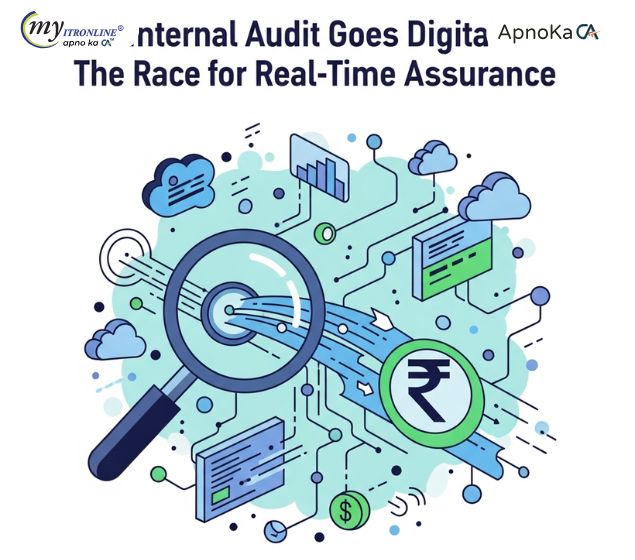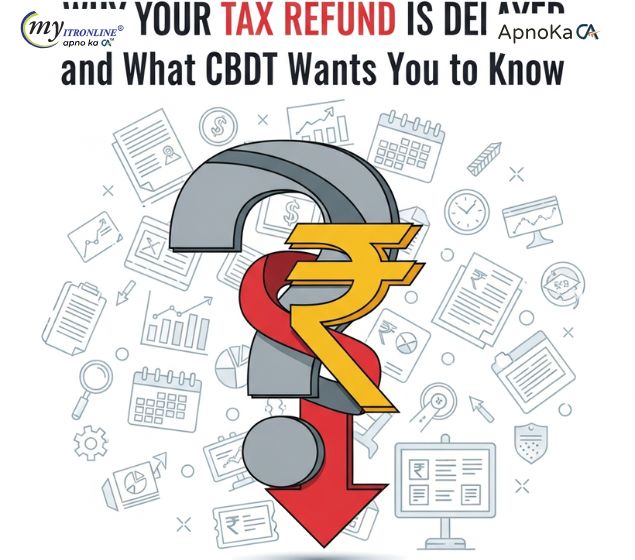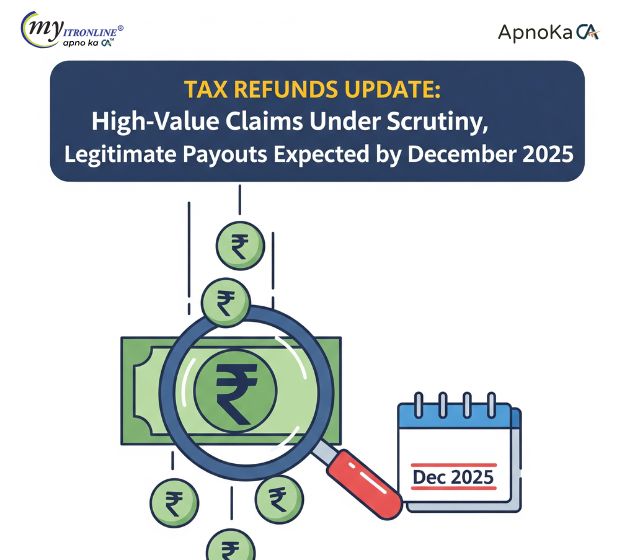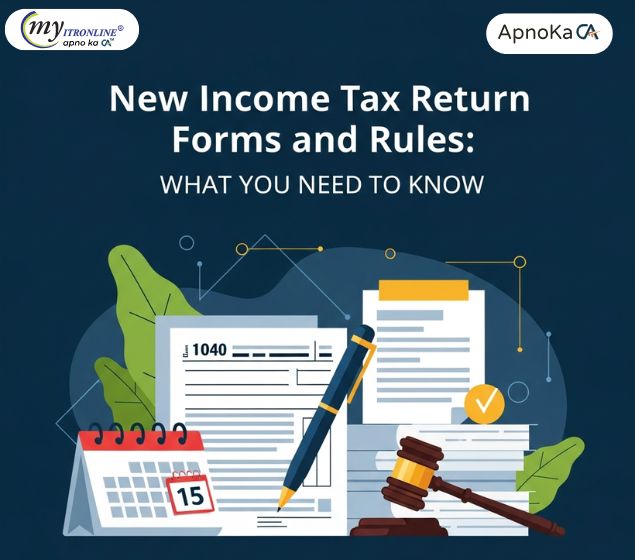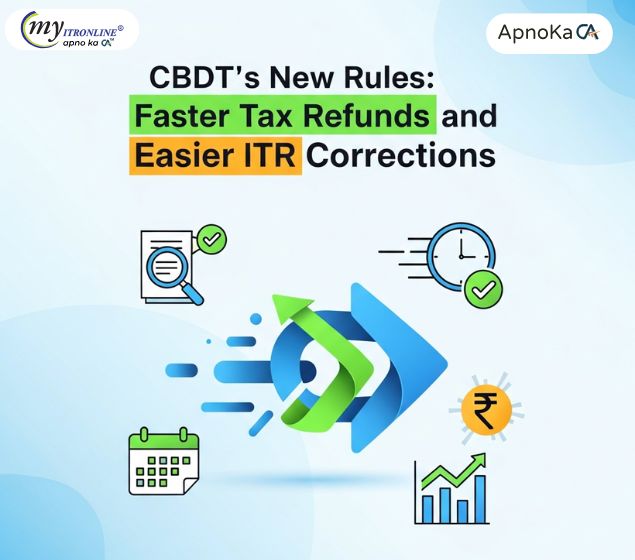From Loan Burden to Tax Savings: The Power of Section 80E for Your Education
This comprehensive blog post demystifies Section 80E of the Indian Income Tax Act, which allows individuals to claim deductions on the interest paid on education loans. It details who can claim, eligible loans, the eight-year deduction window, and the crucial distinction between principal and interest. The post emphasizes the importance of accurate documentation, such as annual interest certificates, and provides actionable strategies to match figures with lender data and navigate ITR forms correctly, thereby avoiding common pitfalls that lead to tax scrutiny. Ultimately, it equips taxpayers with the knowledge to maximize their Section 80E benefits confidently.
.jpg )
In today's competitive world, higher education often comes with a heavy price tag. Education loans have become a lifeline for many students and their families. While the burden of repayment can feel overwhelming, the Indian Income Tax Act offers significant relief under Section 80E. This section allows you to claim a deduction on the interest paid on your education loan. This deduction can greatly reduce your tax liability, but it is essential to follow the rules closely and keep proper documentation to avoid unwanted tax scrutiny.
This blog post will explore the details of Section 80E. It will guide you through its benefits, eligibility criteria, required documents, and strategies to ensure your claims are accurate and free from the taxman’s watchful eye.
Understanding the Power of Section 80E
Section 80E of the Income Tax Act, 1961, is beneficial for individuals repaying education loans. Here’s what makes it valuable:
Deductible Component: Only Interest!
This is the key rule of Section 80E. You can only claim a deduction on the interest part of your Equated Monthly Installments (EMIs). The principal amount repaid does not qualify for this deduction. This distinction is crucial for a correct claim.
No Upper Limit to Savings
Unlike many other tax deductions that have a maximum limit, Section 80E has no cap on the amount of interest you can deduct. This means you can claim the entire interest paid during the financial year, potentially leading to significant tax savings.
Who Can Claim? Individuals Only!
The deduction under Section 80E is only available to individual taxpayers. It does not apply to Hindu Undivided Families (HUFs), companies, or other types of filers. The loan can be taken for the higher education of:
- Yourself
- Your spouse
- Your children
- A student for whom you are the legal guardian.
If parents are paying the EMIs for their child's education loan, they can also claim the benefit.
Eligible Loans and Institutions
To qualify for the deduction, the education loan must come from a recognized financial institution, such as a scheduled bank or an approved NBFC, or an approved charitable institution in India. Loans from friends, relatives, or any informal sources do not qualify for this benefit.
Purpose of the Loan: Higher Education (Anywhere!)
The loan must be specifically for higher education. This includes any course of study pursued after completing senior secondary education (10+2 or its equivalent), such as undergraduate, postgraduate, professional, and vocational courses, whether taken in India or abroad.
The Deduction Window: 8 Years of Benefit
The deduction under Section 80E is available for a maximum of eight consecutive assessment years. This period begins when you start repaying the interest on the loan, or until the interest is fully repaid, whichever comes first. If you repay the interest component of your loan in, say, five years, you can only claim the deduction for those five years. If your loan lasts beyond eight years, you cannot claim the deduction for interest paid after the eighth year.
Old Tax Regime is Your Friend
It is important to remember that Section 80E primarily benefits those under the old tax regime. If you choose the new, simplified tax regime, most deductions, including Section 80E, are generally not permitted.
Essential Documents for a Smooth Claim
Keeping thorough records is not just a good practice; it also protects you against tax scrutiny. Here’s a list of documents you should have ready:
- Loan Sanction Letter/Agreement: This document, issued by your lender, confirms that the loan was for higher education and outlines the terms, including the loan amount and interest rate.
- Annual Interest Certificate/Statement: This is the most important document. Your bank or financial institution will provide an annual statement that clearly separates the principal and interest parts of your EMIs paid during the financial year. The amount you claim must match this certificate.
- Loan Account Statements/Bank Statements: Keep your bank statements showing the EMI deductions. These provide proof of timely payments and help verify information against the interest certificate.
- Proof of Admission/Course Enrollment: While this may not always be asked for upfront, having your admission letter, fee receipts, or any document confirming your enrollment can help if the Income Tax Department requires further verification.
- PAN Card & ITR Acknowledgment: Keep copies of your Permanent Account Number (PAN) and previous year’s Income Tax Return (ITR) acknowledgments for reference.
Steering Clear of Tax Scrutiny: Your Action Plan
The Income Tax Department increasingly relies on data analysis to identify errors and potential incorrect claims. To avoid receiving a tax notice and experiencing unnecessary scrutiny, follow these vital practices:
Precise Interest Claim:
- The Biggest Mistake: The most common error is claiming the total EMI amount (principal plus interest) instead of just the interest. Always use the exact interest figure provided in your annual interest certificate.
- No Rounding Off: Don’t round off the interest amount. Enter the exact figure as provided by your lender.
Match Figures with Lender's Data:
- The Golden Rule: The interest amount you declare in your Income Tax Return must exactly match what your lender reports in their interest certificate. Any mismatch raises an immediate red flag for the tax department.
- Cross-Verify with Form 26AS and AIS: Before filing your ITR, compare the interest amount with the information in your Form 26AS and Annual Information Statement (AIS). These documents reflect what the Income Tax Department has on record. If there is a discrepancy, address it with your lender before filing.
Maintain Immaculate Records:
- Organize Everything: Keep all your loan-related documents (sanction letter, interest certificates, bank statements) neatly organized, both physically and digitally. Create a folder for each financial year.
- Proof is Power: If you receive a scrutiny notice, your ability to quickly provide relevant, accurate documents will be your best defense.
Accurate and Complete ITR Filing:
- Choose the Right Form: Select the correct Income Tax Return (ITR) form based on your income sources (e.g., ITR-1 for salaried individuals with simple income).
- Detailed Disclosures are Key: The Income Tax Department has updated its ITR forms (especially ITR-1 and ITR-4) to require more detailed information for various deductions, including Section 80E. For your education loan interest claim, you may now need to provide:
- Name of the Bank/Lender
- Loan Account Number
- Date of Loan Sanction
- Total Loan Amount
- Outstanding Loan Balance as of March 31st of the financial year
- The exact interest amount claimed.
- No Inflated Claims: Never inflate the interest payments or include interest amounts not paid in the current financial year. Such actions can lead to penalties and a deeper investigation.
Verify Loan Eligibility:
- Source Matters: Ensure your loan was obtained from a recognized financial or charitable institution.
- Purpose is Crucial: Double-check that the loan was strictly for higher education as defined under the Act.
Timely Filing:
- Though not directly related to the claim itself, filing your ITR well before the deadline (typically July 31st for individuals) shows compliance and helps avoid unnecessary attention.
Consider Professional Assistance:
- If your financial situation is complex or you are uncertain about any tax filing aspect, it’s wise to consult a qualified tax professional or Chartered Accountant (CA). They can provide expert guidance, ensure accurate compliance, and represent you if a scrutiny notice arises.
Conclusion,
Section 80E is a powerful tool to ease the financial burden of higher education. By understanding its provisions, keeping thorough records, and following the rules of accurate reporting, you can confidently claim your deduction and enjoy its tax benefits without the fear of scrutiny. Remember, transparency and accuracy are your greatest allies in taxation. Happy filing!
FILING YOUR INCOME TAX RETURN F.Y 2024-25 (A.Y. 2025-2026) WITH MYITRONLINE
The income tax filing deadline is right around the corner. If you haven’t filed yet, do it today with Myitronline! Avoid last minute rush and file your tax return today on MYITRONLINE in Just 5 mins.(www.myitronline.com)
If you are looking for eCA assistance to file your income tax return/ GST, you can opt for MYITRONLINE eCA assisted plan starting
Upload Salary Individual Form-16
If you have any questions with filing your tax return, please reply to this mail. info@myitronline.com OR call 9971055886,8130309886.
Note-All the aforementioned information in the article is taken from authentic resources and has been published after moderation. Any change in the information other than fact must be believed as a human error. For queries mail us at marketing@myitronline.com
Krishna Gopal Varshney
An editor at apnokacaKrishna Gopal Varshney, Founder & CEO of Myitronline Global Services Private Limited at Delhi. A dedicated and tireless Expert Service Provider for the clients seeking tax filing assistance and all other essential requirements associated with Business/Professional establishment. Connect to us and let us give the Best Support to make you a Success. Visit our website for latest Business News and IT Updates.
Leave a reply
Your email address will not be published. Required fields are marked *Share this article
Krishna Gopal Varshney, Founder & CEO of Myitronline Global Services Private Limited at Delhi. A dedicated and tireless Expert Service Provider for the clients seeking tax filing assistance and all other essential requirements associated with Business/Professional establishment. Connect to us and let us give the Best Support to make you a Success. Visit our website for latest Business News and IT Updates.
View articles








